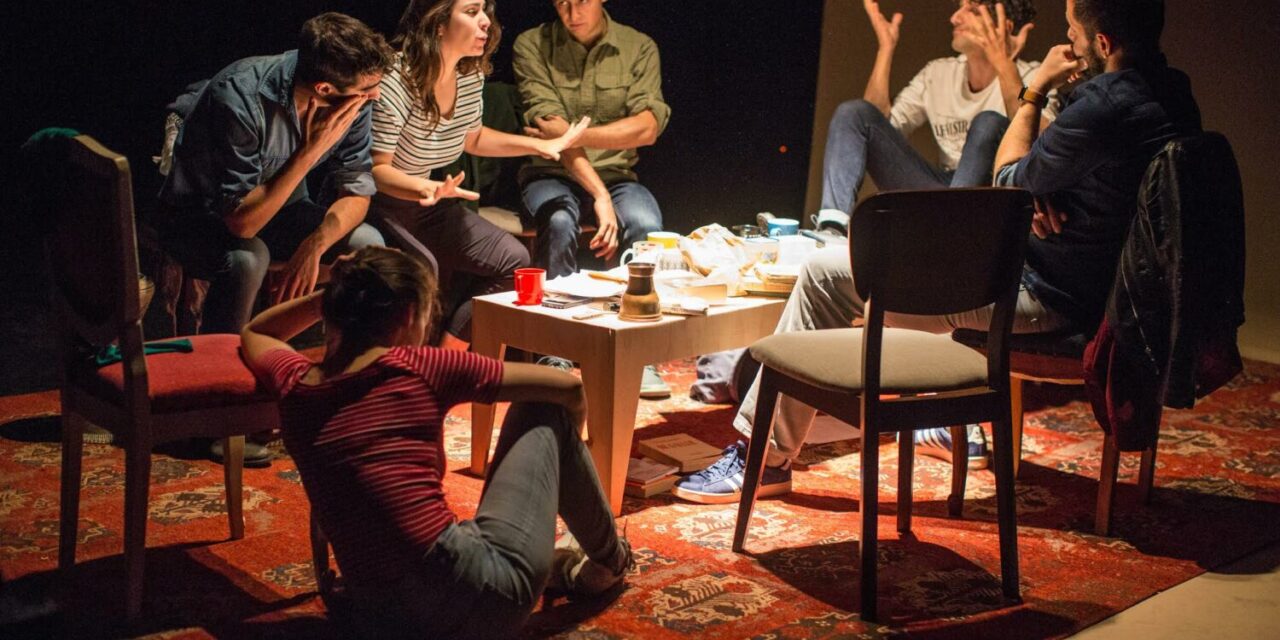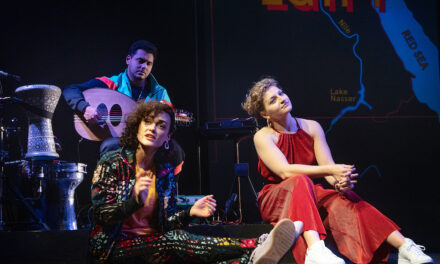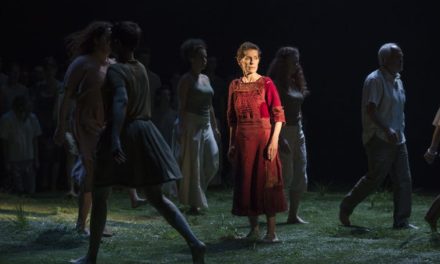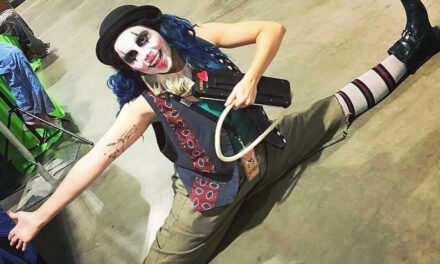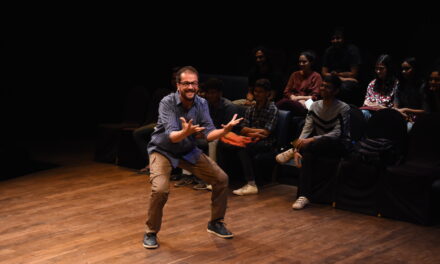El Círculo will have another run in this month’s Santiago a Mil festival. This review is of a performance on June 9, 2019, at Matucana 100, Santiago de Chile.
With projections, puppetry, song, and dance, El Círculo (The Circle) by Santiago-based Colectivo Natuf follows a group of Chilean actors, some Jewish and some Palestinian, as they wade through their conflicts of identity and loyalty and attempt to create a work of theatre together. Importantly, the piece was co-directed by Andrea Giadach Cristensen, of Palestinian descent, and Alejandra Díaz Scharager, of Jewish descent.
The setting that anchors the performance is the actors’ rehearsal space: an intimate living room, with a coffee table and chairs over a warm red rug and a side table with an electric burner and Turkish coffee pot. Here we see three Jewish actors (named Jew 1, 2, and 3) and three Palestinian actors (named Palestinian 1, 2, and 3) meet, somewhat awkwardly, for the first time. They live in the tension of cultural differences and competing priorities, occasionally unite over common ground (belly dancing), and very rarely join in mutual lament (belly dancing does not equal Shakira).
As the actors propose their individual performance ideas to the ensemble, the living room setting ebbs and flows, often transforming into distant spaces through the use of a projection screen, faintly etched with a map of Israel and Palestine. The projection screen, located stage left and on a diagonal, rolls to the floor and continues outward through the middle of the playing space, over the on-stage carpet, spilling out toward the audience.
Maps of Israel, Gaza, Moldovia, and more are projected behind cast members as they tell their families’ histories and advocate for their particular performance approaches. In other moments, faded archival photos of cast members’ ancestors are projected, which allows the cast the comical opportunity to reenact them, all while commiserating under their breath as they discover their distressed family members in the crowd. In another use of projection, a small astronaut puppet is maneuvered by three of the actors, while a fourth cast member kneels on the ground and follows the tiny astronaut face with a mini flashlight, before a projection of outer space.
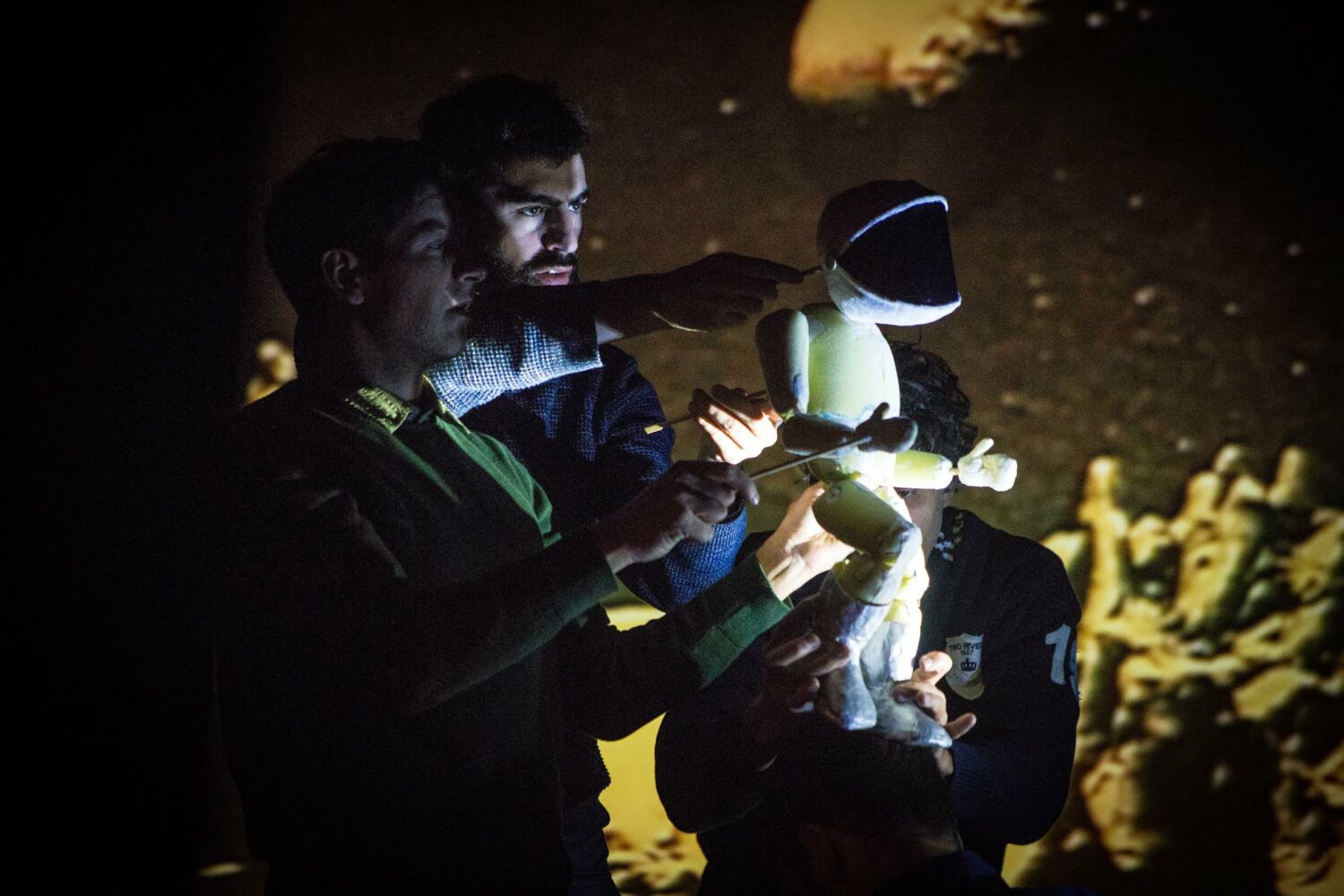
Moisés Norambuena, Constantino Marzuqa, and Antonio Zisis during performance. Photo credit: Andrés Olivares, 2019.
Sometimes transitions are marked with thundering Middle Eastern music and the quick shuffling of bodies in space, while other transitions occur gradually, with the living room fading away as the actors, often begrudgingly, agree to rehearse possible scenes. In one moment of rehearsal, an Israeli soldier puts down his weapon and sits on the ground to join a Palestinian protestor for coffee, and the soldier even thanks him in the Arabic he’s been practicing. Another scene is ripped from the headlines: a blindfolded Palestinian boy on his knees is killed by Israelis. This scene ends abruptly, before reaching completion, as one of the Jewish actors retreats: he doesn’t want to do this. He’s not a killer.
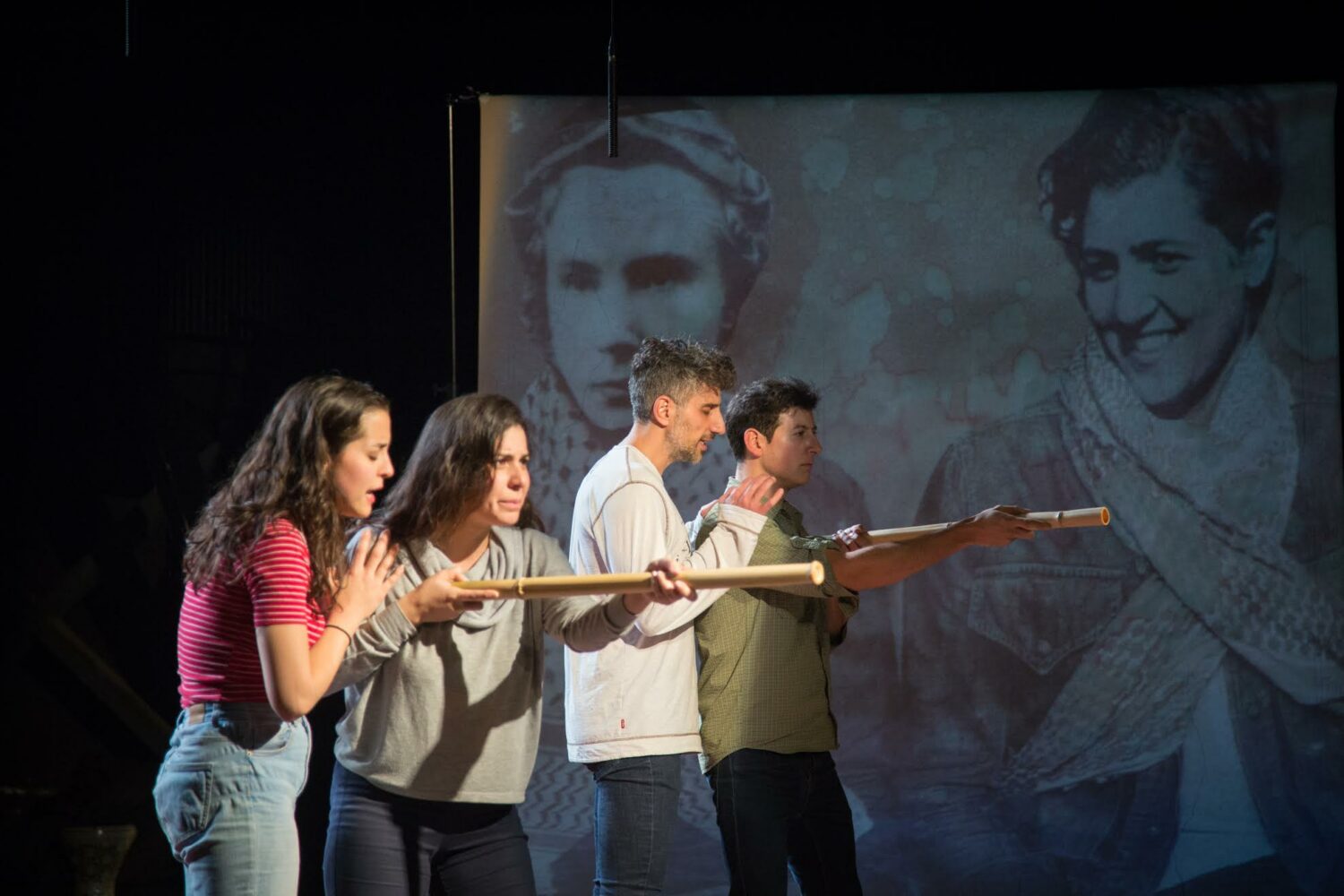
Alejandra Díaz Scharager, Samantha Manzur, Constantino Marzuqa, and Moisés Norambuenaduring performance. Photo credit: Rafael Guendelman Hales, 2019.
Much of El Círculo is quite intense, but some of it is truly funny. There’s the Jewish actor who can’t handle the strong Turkish coffee in rehearsal. There’s the Palestinian actor who quips that, sure, they can situate the performance in Chile as long as the 1973 military coup is the Nakba. One of the Jewish actors, himself a lover of musical comedy, sings a hilarious musical number about Zionism and Netanyahu that, in the words of one of the Palestinian actresses, “is so bad, it’s good.” Live music permeates the performance, with the cast singing Palestinian and Israeli songs, and still other songs from the Ashkenazi and Sephardic Jewish traditions.
What results is a raw and uniquely vulnerable grappling with identity, both individual and collective, and one that directly challenges audience members to confront their own prejudices. Early in the performance, the cast formed a line and faced the audience, and a narrator asked us, “if you had to guess who is Palestinian and who is Jewish, could you tell?” They held a long pause as the actors’ eyes surveyed the audience, and on the evening I attended, a voice called out from behind me, “yes!”
Colectivo Natuf has founded Fundación Natuf to house future projects.
This article is a part of the author’s forthcoming thesis and has been posted with permission.
This post was written by the author in their personal capacity.The opinions expressed in this article are the author’s own and do not reflect the view of The Theatre Times, their staff or collaborators.
This post was written by Mary Allison Joseph.
The views expressed here belong to the author and do not necessarily reflect our views and opinions.

